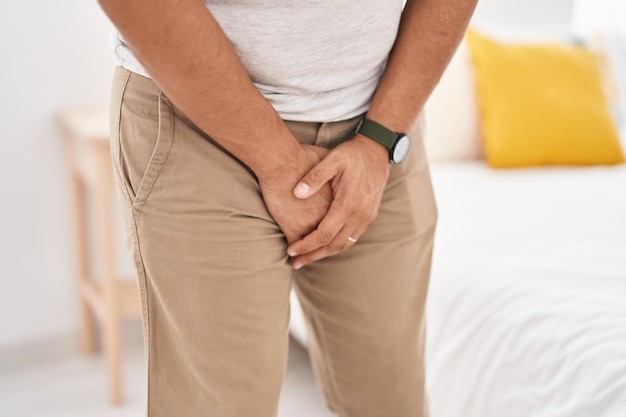Jock itch, medically known as tinea cruris, is a common fungal infection affecting the groin area, inner thighs, and buttocks. While not typically serious, it can cause significant discomfort and embarrassment. Understanding its causes, symptoms, and treatment options is crucial for effective management and prevention.
Risk factors
According to Dr. Sentamil Selvi and colleagues from the Department of Dermatology at PSG Hospitals in Coimbatore, India, jock itch is primarily caused by dermatophytes, with Trichophyton rubrum being the most common causative agent, responsible for 60% of tinea cruris cases. These fungi thrive in warm, moist environments, making the groin area particularly susceptible.
The risk factors include:
• Living in hot, humid climates
• Excessive sweating
• Wearing tight, non-breathable clothing
• Obesity
• Diabetes
• Being immunocompromised
Clinical presentation
The characteristic symptoms of jock itch include:
- Pruritic, erythematous rash with a raised, scaly border
- Burning or stinging sensation
- Flaking, peeling, or cracking skin
- Ring-shaped lesions that may spread to the inner thighs and buttocks
Diagnosis
Dr. Pankajalakshmi V. Venugopal and his team from the Department of Microbiology at Sri Ramachandra Medical College in Chennai, India, reported that while diagnosis is often clinical, a potassium hydroxide (KOH) preparation of skin scrapings can confirm the presence of fungal elements. Their study showed that KOH preparation had a sensitivity of 88% in diagnosing tinea infections.
Dr. Pankajalakshmi V. Venugopal and her team from Sri Ramachandra Medical College in Chennai, India, found that while doctors often diagnose jock itch by looking at the rash, a simple lab test can confirm it. This test involves scraping the skin and treating it with potassium hydroxide (KOH). The study showed that this test correctly identifies jock itch 88% of the time, making it a reliable way to confirm the diagnosis when there’s uncertainty.
Prevention strategies
• maintain proper hygiene
• wear appropriate clothing
• use antifungal powders
• treat concomitant infections
• avoid sharing personal items
• maintain a healthy weight
• manage underlying conditions
When to seek medical attention
Consult a healthcare provider if:
• Symptoms persist after two weeks of self-treatment
• The rash spreads or worsens
• You develop fever or other systemic symptoms
• You have recurrent infections
Conclusion
Jock itch, while common and generally benign, can significantly impact quality of life. Prompt recognition, appropriate treatment, and consistent preventive measures are key to managing this condition effectively.
By understanding the underlying causes and implementing evidence-based strategies, individuals can minimize the risk of recurrence and maintain optimal groin health.


